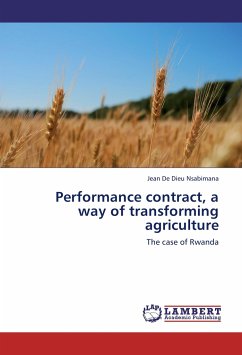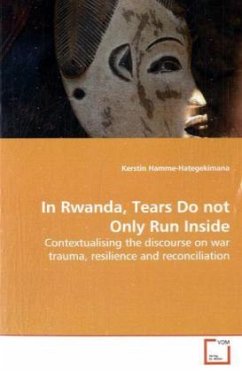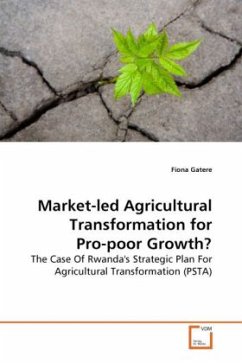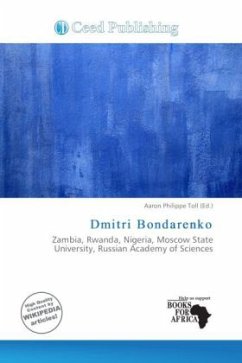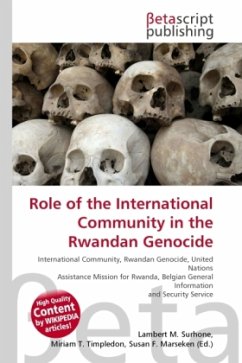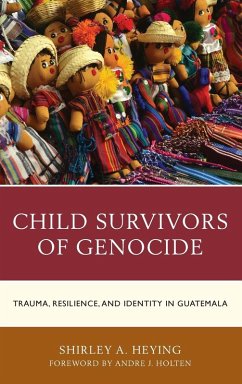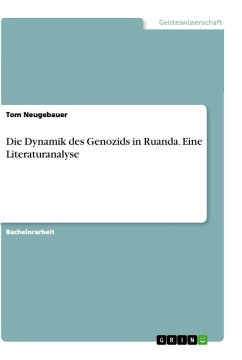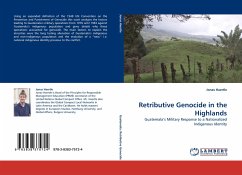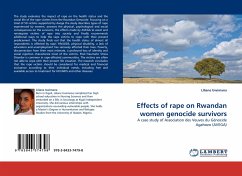
Effects of rape on Rwandan women genocide survivors
A case study of Association des Veuves du Génocide Agahozo (AVEGA)
Versandkostenfrei!
Versandfertig in 6-10 Tagen
32,99 €
inkl. MwSt.

PAYBACK Punkte
16 °P sammeln!
The study evaluates the impact of rape on the health status and the social life of the rape victims from the Rwandan Genocide. Focusing on a total of 50 victims supported by Avega the study describes types of rape experienced by women, assesses the physical, psychological and social consequences on the survivors, the efforts made by AVEGA to assist and reintegrate victims of rape into society and finally recommends additional ways to help the rape victims to cope with their present predicament. The study finds out that the health status of almost all respondents is affected by rape: HIV/AIDS, ...
The study evaluates the impact of rape on the health status and the social life of the rape victims from the Rwandan Genocide. Focusing on a total of 50 victims supported by Avega the study describes types of rape experienced by women, assesses the physical, psychological and social consequences on the survivors, the efforts made by AVEGA to assist and reintegrate victims of rape into society and finally recommends additional ways to help the rape victims to cope with their present predicament. The study finds out that the health status of almost all respondents is affected by rape: HIV/AIDS, physical disability, a lack of education and unemployment has seriously affected their lives. Poverty, disconnection from their most intimate, a profound loss of identity and social rejection characterize most of the victims. Post-Traumatic Stress Disorder is common in rape-affected communities. The victims are often not able to cope with their present life situation. The research concludes that the rape victims should be considered for medical and financial assistance according to their individual needs, including free and available access to treatment for HIV/AIDS and other diseases.



